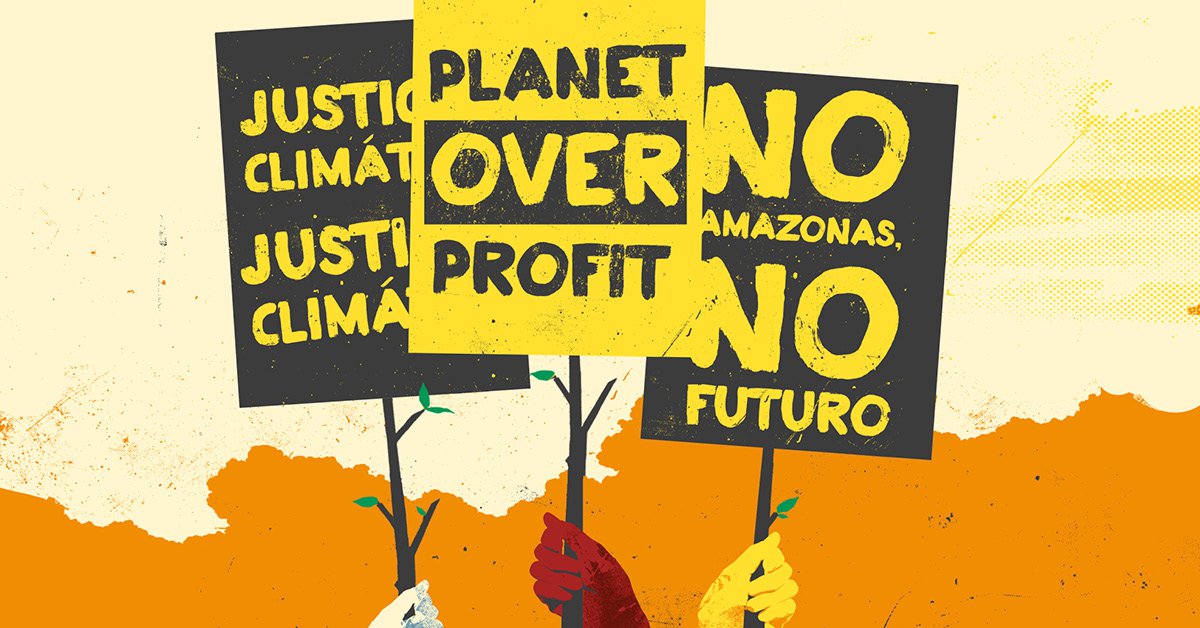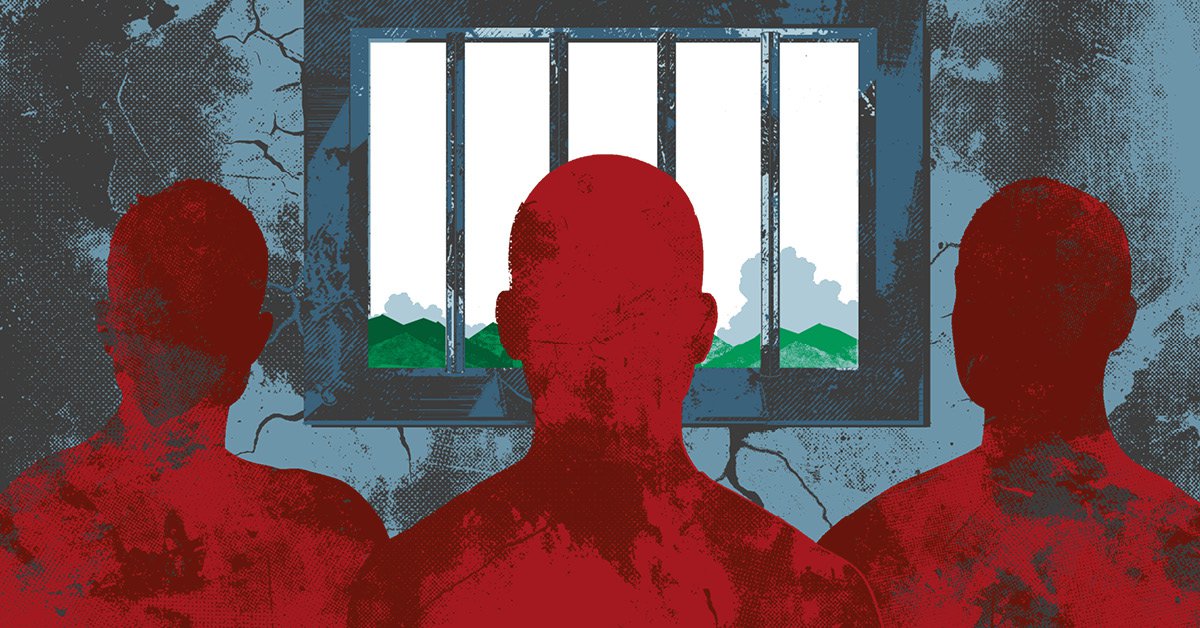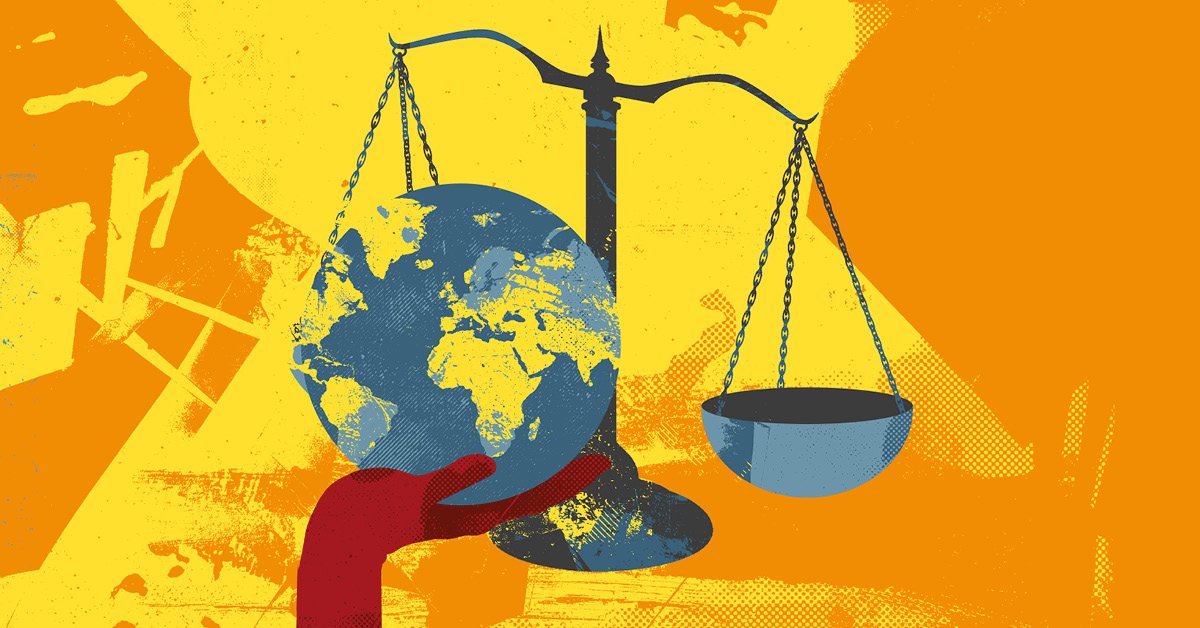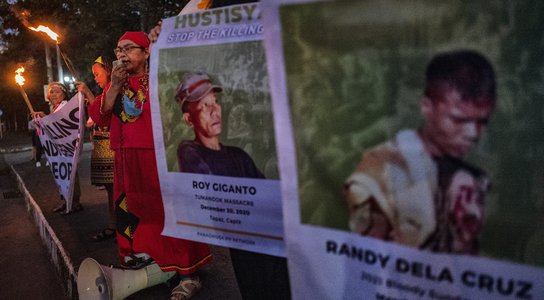If we want to avert a climate disaster and deliver real climate justice, governments and businesses must protect Land and Environmental Defenders and ensure their voices are heard.
Who can be a Defender?
Land and Environmental Defenders (or Defenders for short) are ordinary people trying to peacefully protect their homes, livelihoods and the health of our planet. They take a stand against the unjust, discriminatory, corrupt or damaging exploitation of natural resources or the natural environment. Anyone, in any part of the world – from an individual protesting for climate justice, to a community taking local action to stop a polluting mining operation in their area, or state employees tracking illegal logging – can be a Defender.
The term is an overarching one that covers a disparate group of people whose individual actions serve to benefit the environment, even if that may not be their primary focus. Defenders often live in communities whose land, health and livelihoods are threatened by the operations of mining, logging or agribusiness companies. Others will be defending our biodiverse environment, whilst some will be supporting these community efforts through their work – as human rights or environmental lawyers, politicians, park rangers, journalists, or members of campaigns or civil society organisations.

What do Defenders do?
The tactics and strategies used by Defenders vary from group to group and person to person. However, a common thread that unites them all: they all speak out against the harm done to people or the planet through the exploitation of land and natural resources by businesses and governments for profit. This could be through awareness-raising and protest, peaceful direct action, filing legal complaints, or other ways of speaking out.
Some examples include:
- Berta Cáceres, who through protest, community organising, and filing complaints with government authorities drew attention to the ways a planned hydropower project in Honduras would damage a local river and violate the rights and threaten the livelihoods of Indigenous people who lived nearby.
- Ouch Leng, who along with other members of the Prey Lang Community Network monitors the protected Prey Lang Forest wildlife sanctuary in Cambodia, reporting instances of illegal logging and forest clearance.
- The Waorani indigenous community in Ecuador, who won a landmark legal ruling in 2019 to prevent the Ecuadorian government selling off their land for oil and gas exploration.
You can find many other examples of the incredible work Defenders do in our Defenders annual reports.
How effective are Defenders in fighting climate change?
The role of Defenders, and specially those part of Indigenous communities, is often overlooked when governments and international organisations discuss potential solutions to the climate crisis. However, all the evidence suggests that they are incredibly effective at what they do.
In 2019, the United Nations formally recognised the role of Defenders in environmental protection, and a recent global study showed that in 11% of environmental conflicts, Defenders contributed to halting environmentally destructive projects.
A significant number of Defenders are Indigenous People, who play an outsized role in protecting the environment. While they occupy around a quarter of the Earth’s land, they are responsible for 35% of terrestrial areas with very low human impacts, helping maintain 80% of the world’s biodiversity. Indigenous lands also store hundreds of gigatons of carbon.
Defenders often rely on their local environment for their livelihoods, so they manage it in a sustainable way for future generations. Unfortunately, this frequently brings them into conflict with global supply chains which aren’t interested in environmental preservation.

Why is it so dangerous to be a Defender?
The extractive business models of destructive industries like mining, logging and large-scale agriculture come into direct conflict with the ways in which Defenders live their lives. In too many countries, rich in natural resources and biodiversity, corporations are operating with almost complete impunity – safe in the knowledge that the state will look the other way and prioritise short-term profits rather than protect the rights of local communities.
In their pursuit of profit, these industries may begin by intimidating communities to give up their land, or collaborating with state officials to take it from them. Where people object, companies often back up their demands with threats, intimidation, legal crackdowns or outright violence – using company security guards, state security forces, or hired assassins.
On average, four Defenders have been killed every week since December 2015 – the month the Paris Climate Agreement was signed – with countless more targeted with non-lethal violence or criminalised as a result of their peaceful activities. All too often, there is no accountability for the people who attack them, further reinforcing the culture of impunity and paving the way for future violence.

What can we do to stop attacks against Defenders?
There are ways to reduce the fear and violence faced by Defenders in carrying out their work:
We must support Defenders by raising awareness of the threats they face and making the case for specific laws and policies to protect them.
We must tackle the root causes of these attacks. Violence often occurs when people’s rights to their land and natural resources are weak, undocumented or poorly enforced, while laws empower companies to exploit them with impunity.
To combat this, policymakers must strengthen land rights and environmental safeguards, and protect defenders by enforcing them. They must pass regulations that impose accountability on global supply chain companies dominating the international trade and investments, forcing them to respect the right of communities to give or withhold their free, prior and informed consent regarding the use of their land and natural resources.
And we need to ensure accountability by bringing those responsible for attacks on Defenders to justice, and enabling those who suffer as a result of a company’s actions to seek remedy and reparations for the damage caused.
Ending the culture of impunity is vital to deterring future attacks.


